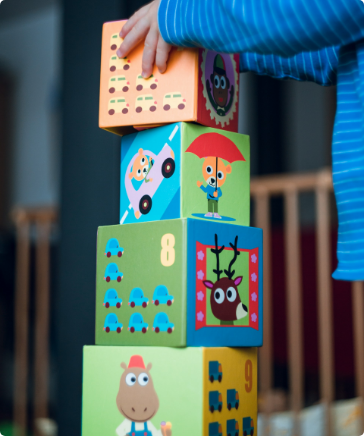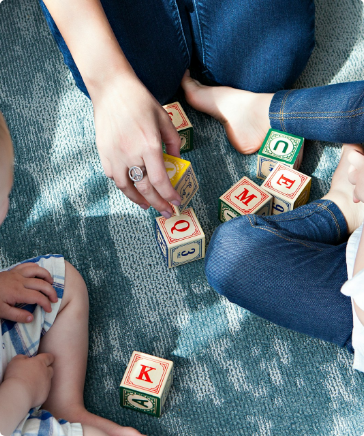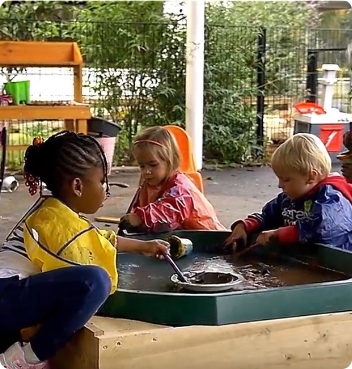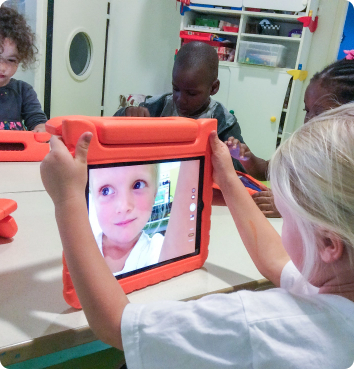Induction Policy for EYFS
(Children starting EY 1 or 2 who are new to ISB)
In many cases, children who arrive at ISB may have previously attended pre-school but at this young age, in a new environment or new country and often with a language barrier, they can quickly feel overwhelmed or anxious. Taking a short time at the beginning to help children adapt to their new surroundings, will ensure that they are happy and confident to come to school in the long term. This policy outlines the procedures we follow to ensure a smooth transition for all children into our care.
Parent Responsibilities

Parents must familiarise themselves with this policy prior to their child starting school, in order to avoid any surprises on the first day.
Parents should spend time talking to their child about starting/school, reading stories about being at school etc. to prepare them before arriving at ISB.
Where possible, parents should attend the open morning in the June prior to the new school year, with their child, in order to familiarise them with the setting and routines and to meet the staff and other children.
When a child arrives in the middle of the year, parents should try to schedule a short visit to the school to familiarise the child with the setting and the staff.
Parents must inform the school of any concerns or information they have that may be relevant, prior to the first day.
After the induction period is over, parents should bring their child into class every day and should try to leave promptly to reduce the risk of their child getting upset when they leave.
Staff Responsibilities

Greet children and their parents warmly and make them feel welcome.
Collect information from parents about the child’s routines, likes and dislikes (where possible, prior to them starting).
Ensure children’s physical and emotional needs are met; providing comfort and reassurance, and responding promptly to any signs of distress or discomfort.
Explain the school policies and procedures, including drop-off and pick-up times, security measures, and communication channels, with parents.
Support children in the settling-in process; introduce them to other children and staff members, help them settle into their designated area, engage them in activities that interest them etc.).
Build a positive relationship with children and their family; responding to any concerns or questions they may have.
Maintain regular communication with children’s parents; providing updates on their child’s progress, sharing feedback and observations and addressing any concerns or issues that may arise
First Week in Early Years
First day
Parents should be prepared to stay on the premises with their child and be aware that their child may only stay for a short “taster” session of an hour or so. Parents accompany their child to their classroom and help them settle into their new environment. If the child is upset or anxious, the teacher may ask the parent to stay in the classroom with them. It is up to the class teacher to decide what is best and whether the parent may leave. Children will have the opportunity to play in the classrooms and playground, meet the members of staff and other children and eat a snack with their class. After this, the parent should take their child home. Hopefully they will have had a good experience at school and will be looking forward to returning the following day.
Second and third days
Parents are encouraged to say goodbye to their child and explain that they will be coming back for them soon. Parents should not “sneak out” without saying goodbye, even if their child is happy playing. The class teacher will advise you at what time to pick your child up. Parents should be “on call” in case a child becomes very upset. Most children are ready to stay for a full session after the two induction days however, in some cases, children may require reduced sessions to allow for settling-in. The class teacher will advise you what is best for your child.
Separation Anxiety
Many children are happy to start school and settle in right away, but this is not the case for all children. Many children cry when they start school and we understand this can be challenging for parents. After the induction period, if a child is very upset, we will do our best to calm them down while the parent is dropping them off. However, it may be that the class teacher asks the parent to leave if crying persists for an extended time, as it can be unsettling for the rest of the class and the child themselves.
Our class teachers are experienced in dealing with separation anxiety and in many cases, after the induction period, the longer a parent stays the worse the anxiety becomes. While our aim is to provide a nurturing and welcoming environment, where each child can settle into school at their own pace, it is not possible to have parents staying in class every day for an extended period of time.
If you are finding it too difficult and are unwilling to leave your child at school after the first full week is over, the class teacher with have a meeting with you to discuss a later starting date.



